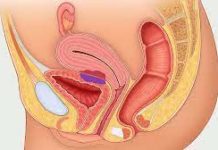Thyroid is a butterfly-shaped endocrine gland that is two inches long and positioned at the base of the neck. It regulates several key physiological functions. A dysfunction of this gland can cause a variety of health problems, including weight gain or loss, cardiac difficulties, and infertility. ALSO READ : FOODS THAT CAN WORK WONDERS FOR YOUR SLEEP
Women have a higher risk of thyroid disease than males, so it’s critical for them to be aware of key warning signs and symptoms. This illness is more common in women than in males, especially after pregnancy and menopause. According to statistics, one out of every eight women in the globe has this illness, however 60% of women are unaware of the symptoms. It is typically the case because the warning indicators might be misinterpreted.
There are seven thyroid warning symptoms that women sometimes overlook.
- Weakness and exhaustion
It’s tempting to dismiss exhaustion and lack of energy as signs of anything more severe in a time when they’ve grown so frequent. Irregular tiredness and persistent weariness are two symptoms that might indicate this problem. An overactive thyroid gland, which regulates metabolism, causes the metabolism to flare up, resulting in energy loss and weakness. An underactive thyroid, on the other hand, might cause sluggishness and fatigue due to decreased metabolic activity. Heart palpitations, muscular weakness, and joint problems can all be symptoms of fatigue and weakness.
- Weight gain or reduction that isn’t explained
Because the gland is so important for metabolism, any unexplained weight gain or loss might be a sign of the disease. Low thyroid hormone levels in the body can lead to weight gain, whereas a hyperactive thyroid can emit too many hormones, resulting in rapid weight reduction. Hypothyroidism produces massive weight gain, whereas hyperthyroidism causes major weight loss.
- Heat or cold sensitivity
The metabolism speeds up as a result of an overactive thyroid, and the body burns more calories than normal. This not only affects weight, but it also promotes heat sensitivity. Hyperthyroidism is characterised by heat sensitivity, excessive perspiration, and even anxiety. Hypothyroidism, on the other hand, slows the metabolism and obstructs the body’s natural processes.
- Pigmentation on the nape of the neck
The darkening of skin folds around the neck is a very typical early indication of thyroid disease. Because the thyroid’s gland is also in charge of skin and hair health, any hormonal imbalances might result in dry or oily skin, itchy scalp, thinning hair, or brittle nails. It is recommended that you have your thyroid levels examined if you develop one or more of these symptoms.
- Sleep disturbances
It might be a sign of the dysfunction if you’ve been tossing and turning in bed. An overactive thyroid can affect your mood, neurological system, and make you weary, making it difficult to get a good night’s sleep. Night sweats and frequent urination are two symptoms that may interfere with sleep.
- Anxiety and fogging of the mind
Mental health concerns including as worry, stress, fatigue, and brain fog have been brought to the forefront since the epidemic. Such symptoms should not be overlooked or dismissed, since they may suggest a serious problem. This disease can cause anxiety, agitation, tremors, mood fluctuations, as well as brain fog and memory loss, lack of focus, and energy loss in women.
Inconsistent menstruation
Menstrual abnormalities are frequently misdiagnosed as indicators of PCOS or infertility, but they can also be a sign of thyroid disease. Variations in thyroid levels might affect the menstrual flow and induce changes in the periodic cycle. Because the thyroid gland is in charge of governing the reproductive system, lower or higher thyroid levels might cause problems.




